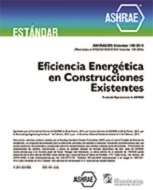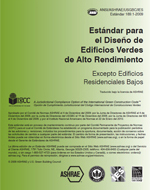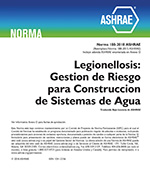Description
There is at present considerable interest in the effect of connecting ductwork on the performance of ventilating fans. As is well known, much fan catalog performance data has been taken from tests which were conducted using an open inlet fan, with a long straight discharge duct. The reason for the long straight discharge duct is that the pitot tube traverse method of measuring fan volume flow rate required a relatively uniform velocity profile. With the adoption of the chamber nozzle test method, shorter discharge ducts can be used. It is now general practice to use a discharge duct which is sufficiently long to give the slight increase in pressure which results from the mixing of high and low velocity air at the fan discharge in the first few feet of discharge duct. Usually this length need not exceed two or three duct diameters. It is understandable that the open inlet fan is the choice for the standard test since it is the simplest to test and gives the best fan performance.
The usual fan installation falls short of meeting these requirements for best performance, however. Few fans are without some restriction or obstacle to the flow of air into the inlet, and many are not followed by two or three diameters of straight discharge duct. It is therefore logical for the designers of air-handling systems to want information which will let them choose the most desirable installation from the point of view of fan performance. When the optimum is impractical, quantitative knowledge of the effects of performance-limiting factors is necessary if the fan to be chosen is to meet the pressure, flow rate, and horsepower requirements. The following paragraphs attempt to supply this quantitative knowledge for a few common inlet configurations. Since the number of different combinations which may be encountered is limited only by the imagination of the designer, only a few of the more common arrangements can be discussed in this paper.
Citation: ASHRAE Transactions, Volume 77, Part 1, Philadelphia, PA
Product Details
- Published:
- 1971
- Number of Pages:
- 7
- File Size:
- 1 file , 560 KB
- Product Code(s):
- D-PH-2174




